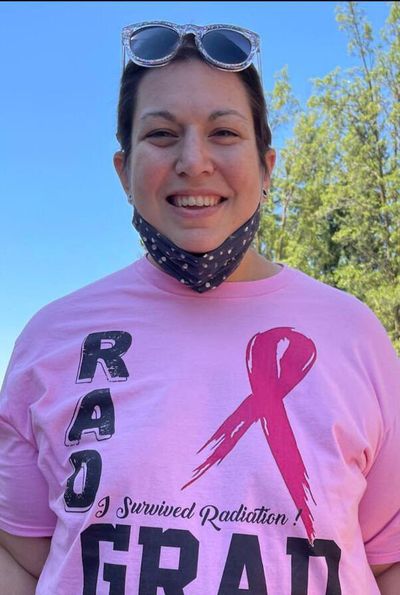Shawn Vestal: No room in the ICU for Idaho woman who dies in ER

It was a Thursday night, Jan. 6, when Katherine Jane Ripley showed up in the emergency room at Moscow’s Gritman Medical Center.
Ripley was suffering from a blood infection resulting from pneumonia and needed serious, specialized care. She had emerged several months earlier from a battle with Stage 4 breast cancer, having fought the illness into remission through chemotherapy and radiation treatments. What she needed now was an intensive-care unit bed that provided continuous dialysis, said her father, Kai Eiselein – something Gritman does not have.
“She was in trouble,” Eiselein said. “In a normal year, she would have been life-flighted out within the hour.”
This is far from a normal year, though, as COVID-19 patients are straining hospital capacity everywhere. Gritman’s ER staff tried hospitals in Washington, Oregon and Idaho, without success. Ripley’s family engaged friends, including some in the medical community in Western Washington, and they also tried to locate an ICU bed with the specialized care she needed.
All without success.
Twenty hours after she arrived in the ER, Ripley died. She was 33, and left behind a husband, Ian, and two kids.
When Eiselein, a long-time former journalist in North Idaho, wrote her obituary, he didn’t pull any punches.
“There were no beds available,” read the obituary, published late last week in the Lewiston Morning Tribune, “thanks to unvaccinated COVID-19 patients.”
The obituary ended with this: “Please, get vaccinated against COVID-19 – your actions really do affect others.”
In an interview this week, Eiselein said, “I kind of got pissed off. People need to know their actions have consequences.”
A spokesman for Gritman Medical Center, Peter Mundt, could not discuss the specifics of Ripley’s case, but confirmed that access to specialized care has become more and more limited as hospitals struggle to treat high numbers of COVID-19 patients – the vast majority of whom are unvaccinated.
“The strain that COVID-19 has put on the hospital and health care systems … statewide and regionwide is absolutely, completely unprecedented,” he said.
Since June, more than 82% of the hospitalized COVID-19 patients at Gritman have been unvaccinated, Mundt said. Similar patterns repeat at hospitals all over. Even as the omicron variant has spread and produced many more breakthrough cases among vaccinated people, the most serious illnesses and deaths have continued, by a wide margin, to be most prevalent among the unvaccinated.
The most recent report from Washington’s Department of Health, issued Wednesday, showed again that unvaccinated people are much more likely to get COVID-19 and to suffer serious consequences. An unvaccinated person between ages 35 and 64 is three times more likely to contract COVID and eight times more likely to be hospitalized than someone who’s vaccinated.
At age 65 and older, an unvaccinated person is four times more likely to fall ill, seven times more likely to be hospitalized – and 13 times more likely to die.
Hospitals say they are strained to the limit. A team of National Guard members is arriving to help at Providence Sacred Heart Medical Center. Elective and nonurgent procedures are being put on hold again. Hospitalizations in the Idaho Panhandle more than doubled over the past week.
Gritman Medical center is a critical access hospital, the federal designation for many rural hospitals, and it relies heavily on transferring patients needing specialized care – such as burn treatments or pediatric ICU – to hospitals in cities around the region.
This has become more and more difficult during the pandemic, Mundt said. The availability of specialized ICU beds – such as the one Ripley required – has been limited as hospital resources, staffing and equipment are consumed by treating COVID-19 patients.
“Hospitals where we would ordinarily transfer patients don’t have the capacity to take them because of the COVID-19 pandemic,” said Mundt, who is Gritman’s director of community relations and marketing. “It’s imperative that the public understand the negative impact … that COVID-19 has had on hospital systems, including the ability to transfer from one hospital to another.”
It’s not clear whether Ripley would have survived had the services she needed been available.
“Maybe she would have lived, maybe she wouldn’t have,” Eiselein said. “But she didn’t even have a chance.”
Ripley was born in Spokane in 1988. She spent much of her childhood in the Kendrick, Idaho, area, and graduated from Kendrick High in 2006. Like her father, who worked as a journalist in Moscow for many years, including running the Latah Eagle, Ripley worked at newspapers. She was a clerk at her father’s Eagle and the Lewiston Morning Tribune, and later went to work as a “spirit guide” at a state liquor store in Lewiston.
Most recently, she had stayed home and raised her children, Aaron, 13, and Amelia, 7. She died one day before her sixth wedding anniversary.
The publication of the obituary last week attracted a lot of attention, including some negative, hateful comments from anti-vaxxers, Eiselein said. One woman, with astonishing gall, contacted him on Facebook and asserted the obituary had a “factual error,” because there were some ICU beds available. But the beds she incorrectly believed were available were not suited for Ripley’s needs.
But if there’s been some trolling, the family has also received an outpouring of support, and Eiselein is glad he spoke up. People need to understand how seriously they are affecting everyone else when they don’t get vaccinated, he said.
“Get vaccinated, people,” Eiselein said. “If you’re not sure about it, then talk to a doctor. Don’t pay attention to the garbage online from people who don’t know anything.”